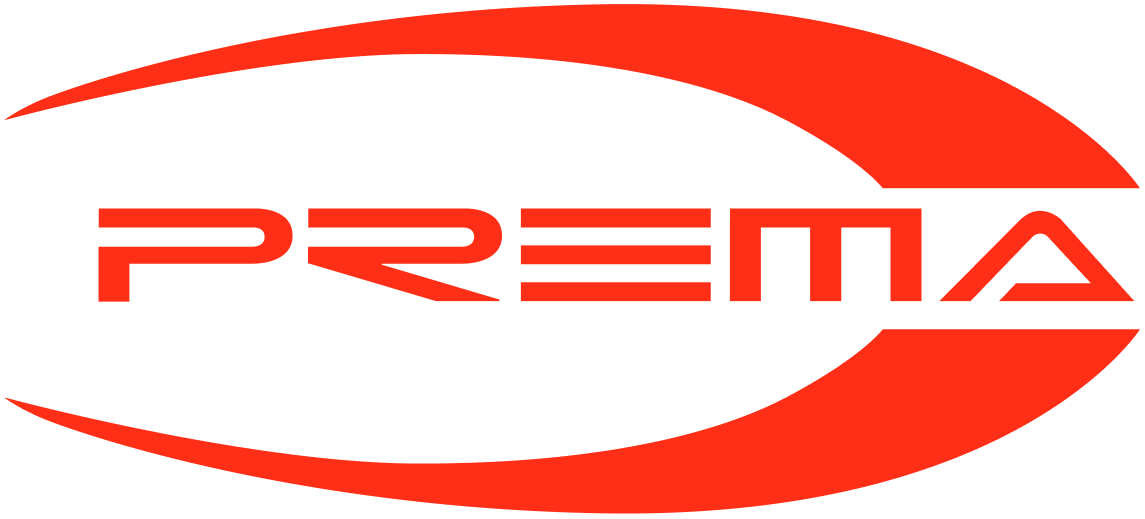Walk into any auto body shop or bottling plant, and you’re likely to find an air compressor system that’s the wrong size for the job it’s doing.
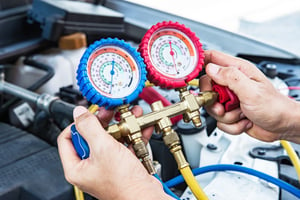 order, that one unhappy customer, or the sticky conveyor belt that’s delaying fulfillment. In other words, they’re focused on the immediate bottlenecks preventing timely execution, leaving little time for reflecting upon the system as a whole.
order, that one unhappy customer, or the sticky conveyor belt that’s delaying fulfillment. In other words, they’re focused on the immediate bottlenecks preventing timely execution, leaving little time for reflecting upon the system as a whole.
But every manager needs to regularly ask themselves: Is what we have what we need? It’s hard to find time to ask that question, and even harder to hear that no, we don’t. But hardest of all is finding an answer to the next question: what do we really need?
Taking the time to find an air compressor that’s tailored to your particular application will pay off in the long run. Your energy costs will drop, your components will last longer, your productivity will rise, and you’ll spend less time and energy on the problems that plague your operations.
First of all, what do we mean when we talk about the size of an air compressor? Most people would assume that size correlates with physical presence or horsepower. In some cases, those things matter, but the actual size of a compressor can be misleading.
What really matters when it comes to compressed air is flow, or how much air the machine can produce in a given amount of time at a given pressure. The metric we use to describe that is SCFM, or, Standard Cubic Feet per Minute.
Why not use horsepower as a measurement? Firstly, peak horsepower doesn’t reflect the actual power the machine can produce over long periods of runtime, so it won’t accurately capture the machine’s real capacity.
Second, different technologies have different efficiencies — some produce more air with less horsepower, while some produce less air with more horsepower. When in doubt, pay attention to SCFM.
How much flow you need depends on your tools or the application of the air. All you have to do is add up the flow requirements of the tools you want to use simultaneously. Say you have a hydraulic riveter that requires 4 SCFM, a die grinder that requires 3 SCFM, and a grease gun that requires 5 SCFM. That means that in order to run all your tools at the same time, you need an air compressor that’s rated for 12 SCFM.
If you don’t have enough flow, you’ll experience pressure drops and your tools won’t get the pressure they need to work properly. You’ll also experience more downtime, periods where you have to wait for the compressor to build up pressure in the reserve tank before you can run your tools again.
Now, you may assume that the solution to avoiding pressure drops is more flow. But say you’ve got the same tool requirements (12 SCFM max) running on a 65 SCFM air compressor. You won’t have a flow problem, but you will have an energy efficiency problem.
If you actually use and need the additional air flow, a larger machine will be more efficient. But if you only need 12 SCFM at any given time, an oversized machine will result in significant energy losses. And energy loss is profit loss: 80% of the lifetime cost of your compressed air system comes from the electricity it consumes. You don’t want to use more air than you need.
If you have an oversized machine, you’ll want to look at switching to a smaller unit. It may hurt now, but it’ll save you money in the long run.
Flow, measured in SCFM, is your most important consideration. But there are a few other things to take into account as well. For example, how often and when do you actually use a given tool in the shop? Do you only use one tool at a time, or do you frequently use tools together?
You’ll also need to consider temperature, atmospheric pressure, and relative humidity, as they’ll also affect flow. Lower temperatures, lower altitude, and lower humidity will all increase flow. If you’re in a hot, humid, high-altitude environment, you’ll want to adjust the rated SCFM down based on your environmental conditions.
A quality compressed air system should also consider the system’s load profile and airline loss. There will always be some natural air loss in any compressed air system, and the more hoses you have, the more air loss you can expect.
Some compressed air technologies, like rotary screw, will experience deterioration of efficiency and flow over time as components wear down. Make sure you account for expected flow loss when you purchase the machine.
Achieving optimum productivity from your workforce — and maximum efficiency from your compressed air system — requires properly sizing your machine to the application. If the compressed air system you’re running isn’t the right size for the job it’s doing, contact your local Mattei distributor for an audit of your compressed air system. Mattei technicians can help you find the right size compressor for you, which will reduce your energy consumption, lower your operating costs, and ensure that your employees have quality compressed air to get the job done right.

Mattei offers a wide range of vane compressor models that perfectly meet the specific needs of the transport industry.

The reliability of Mattei compressors, the high quality standards of the delivered compressed air and the compliance with the industry regulations, make them ideal to be used in the healthcare and pharmaceutical industry.

Reduced operating costs, environmental sustainability and extreme purity of the air supplied make Mattei compressors suitable for all processes in the food industry.
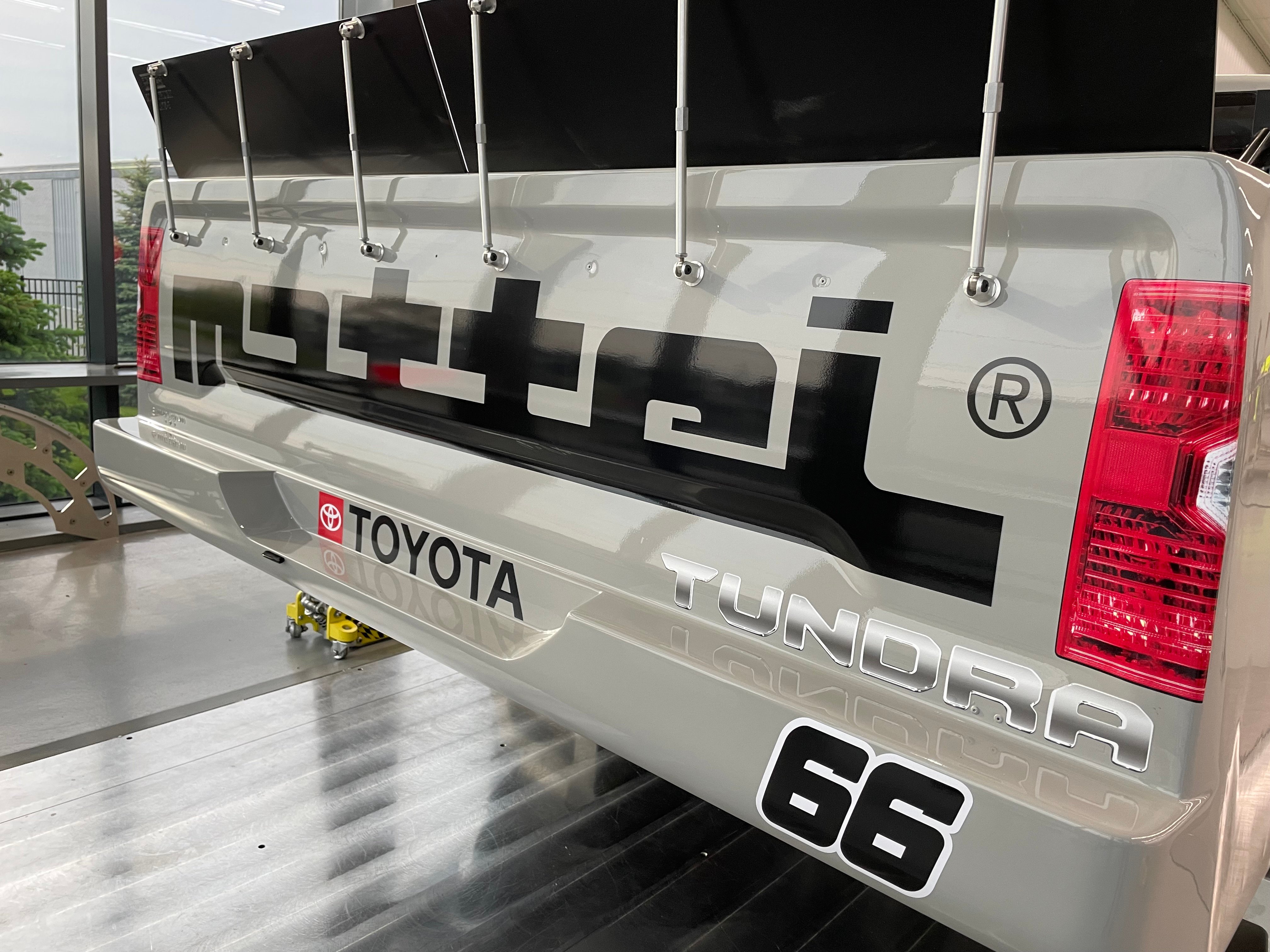
Good luck ThorSport Racing. Waiting to watch the racing!
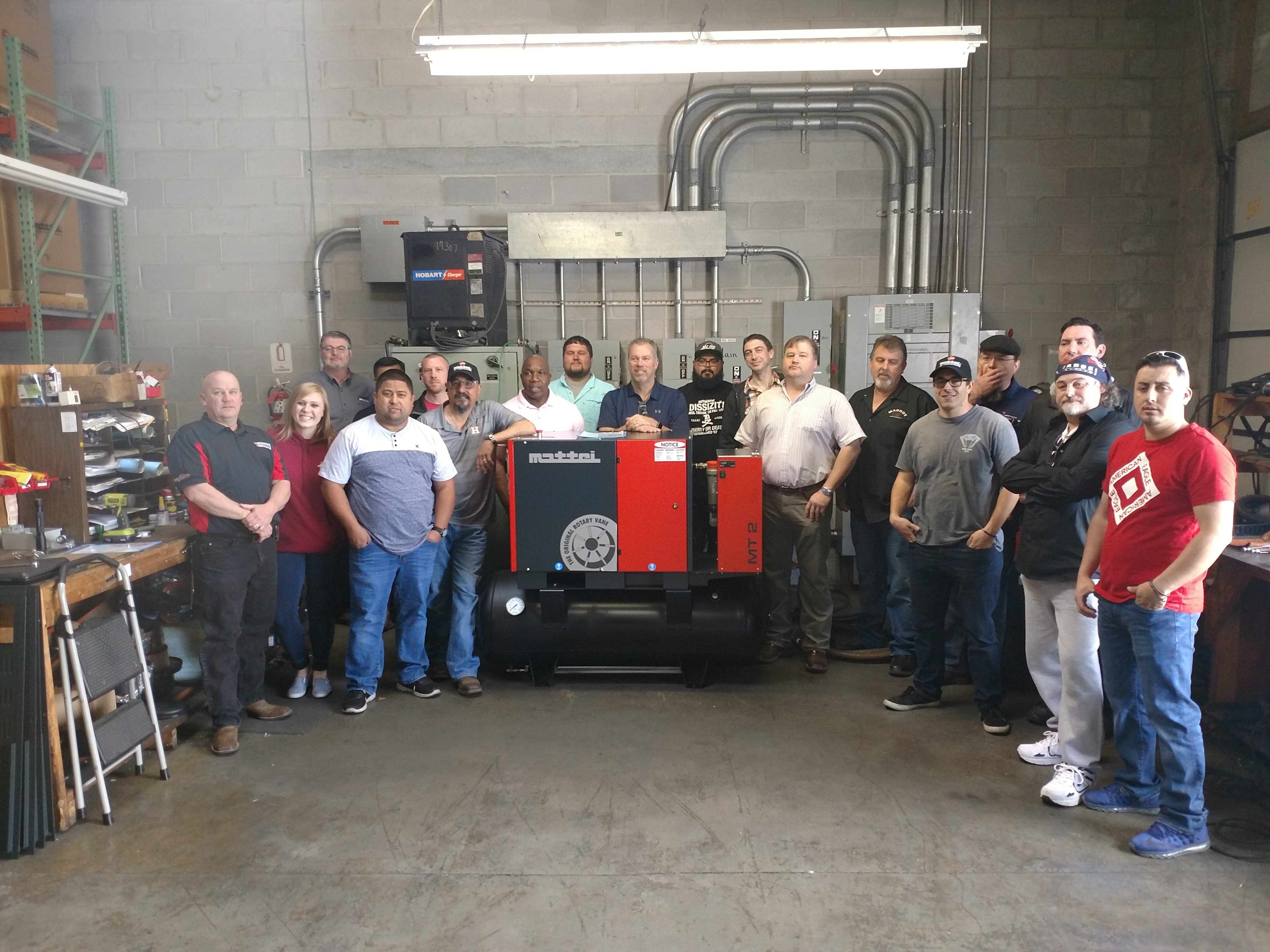
We recently held our Spring 2018 Service School for distributors. The school graduated 17 participants from both the sales and service sides.

Today, Mattei Compressors, Inc., announced the recipients of its 2017 Distributor Awards. These distributors went above and beyond to provide high-quality service to Mattei customers over the past year.
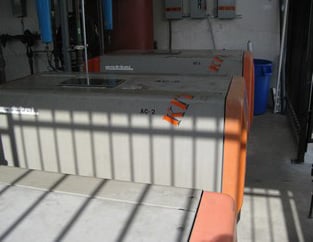
Helix Medical, LLC is widely regarded as a premier supplier of biocompatible silicone medical devices and components to the medical device, pharmaceutical and biotech industries.
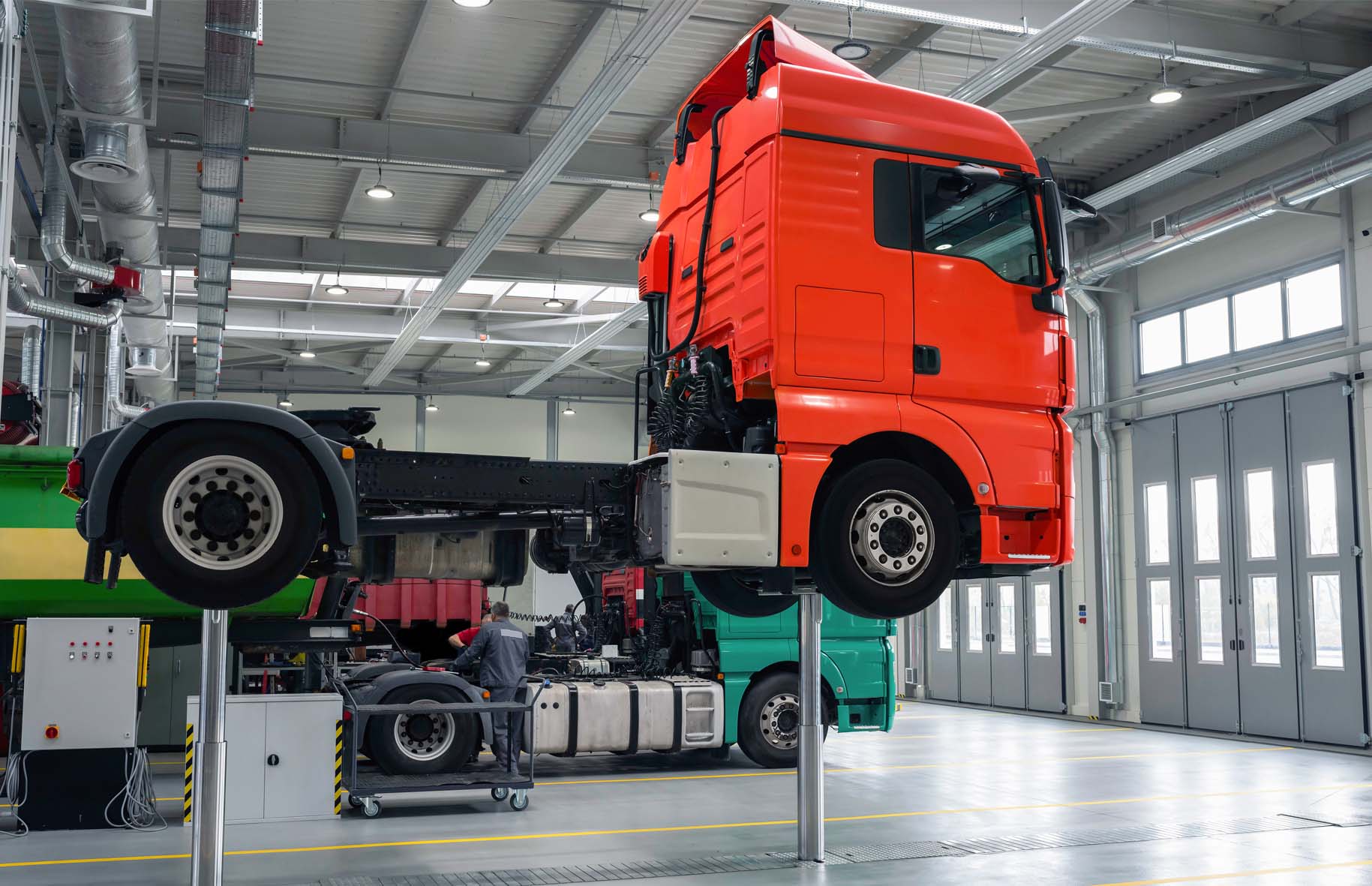
John Baker Sales, a Mattei distributor located in Colorado, worked very closely with Transwest to ascertain the company’s needs prior to making a product recommendation.

